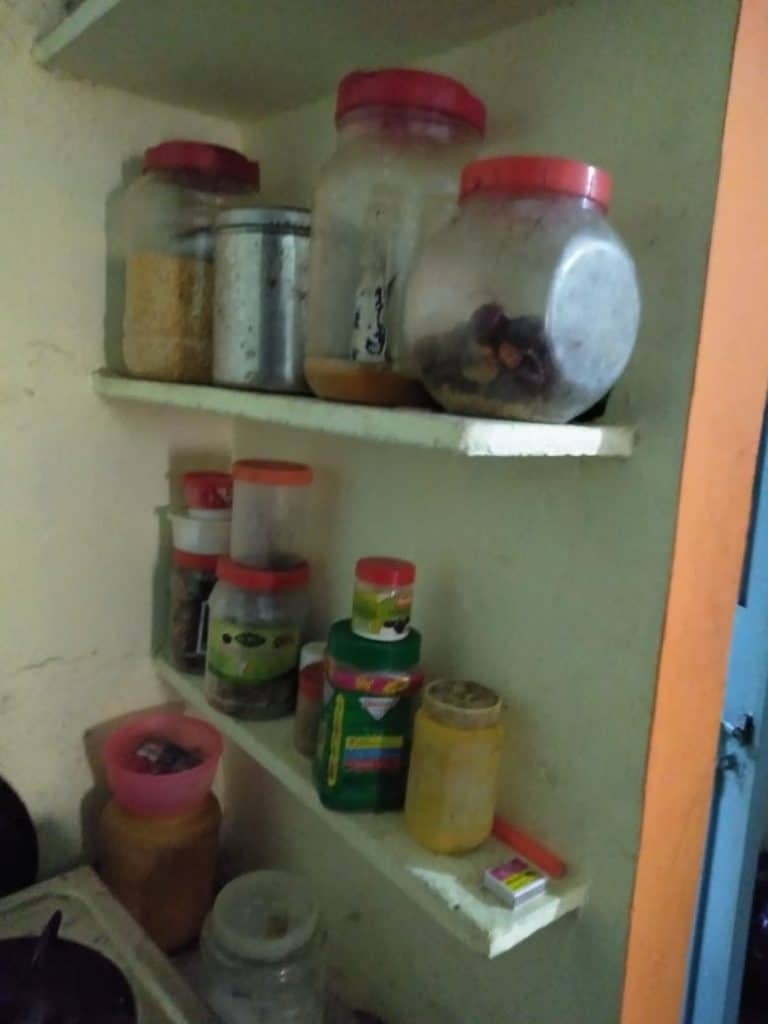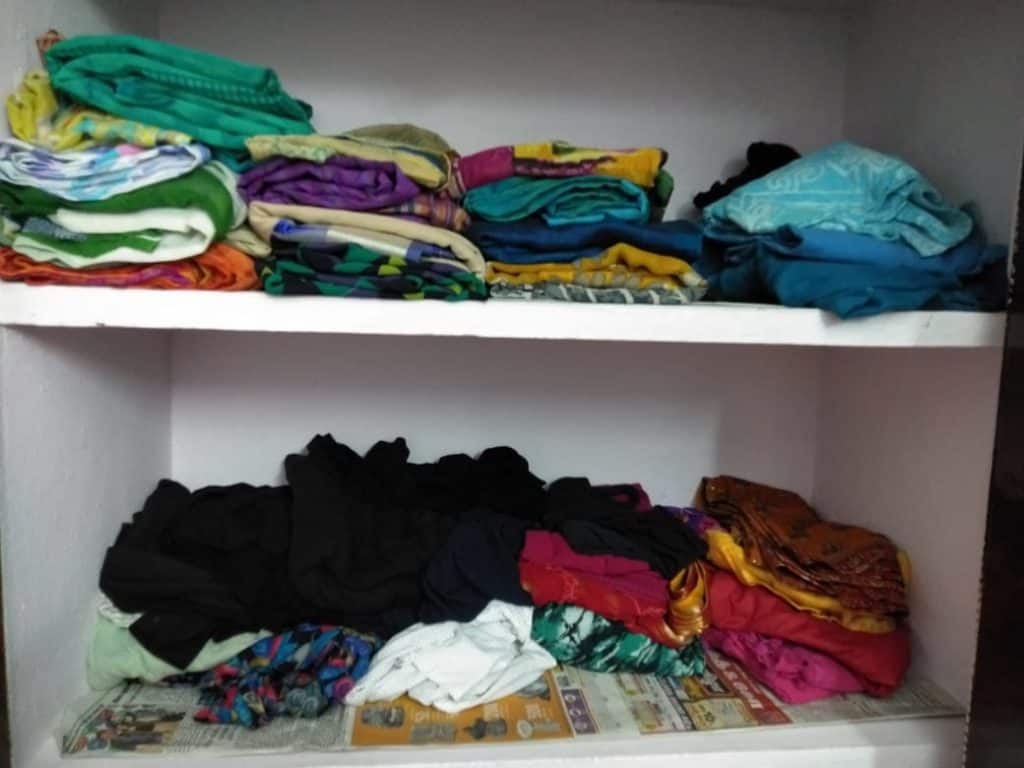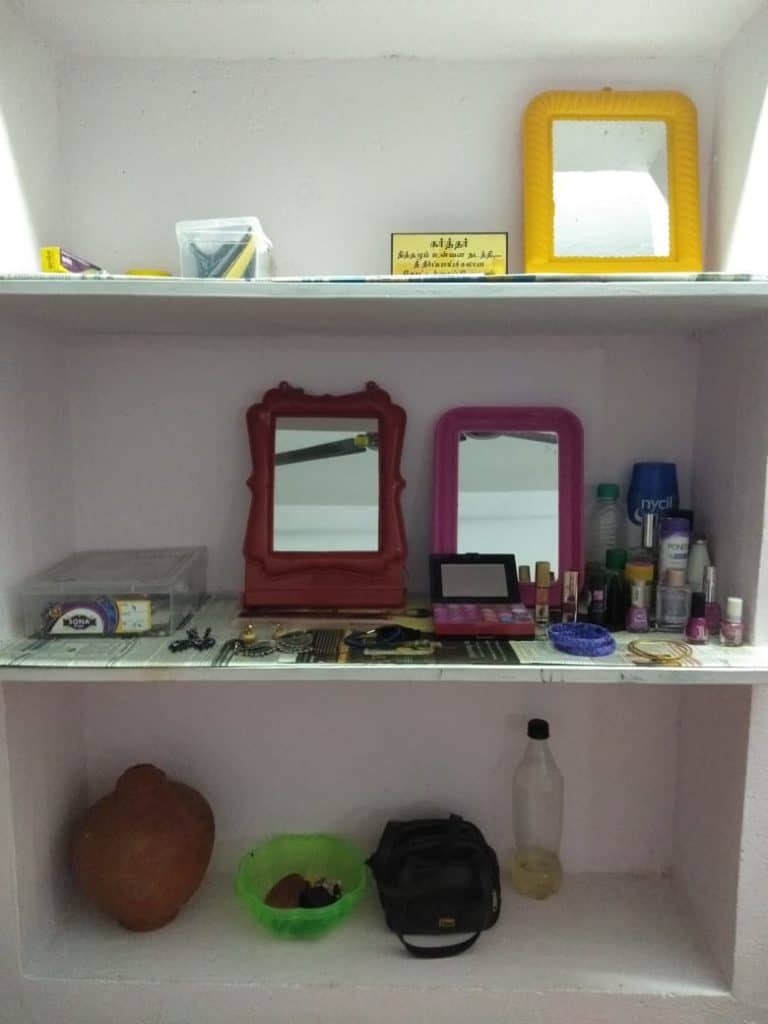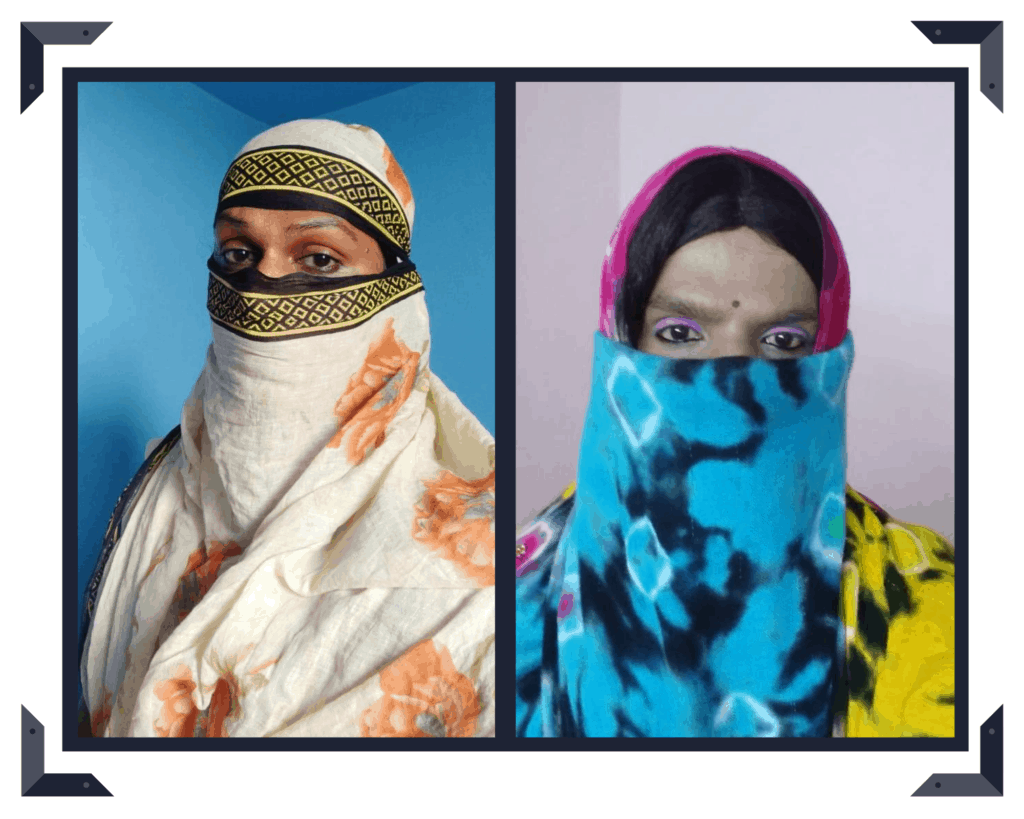“Getting a customer who can afford to pay at least Rs 50 for a night is a big deal now. A week ago, I had a customer who offered only Rs 30, but I could not deny him. Every single penny counts today,” 32-year-old Christina, a transgender and sex worker in Chennai, tells me.
The threat of coronavirus has acutely affected the livelihood of transgender persons in Chennai. The city is home to around 4,000 trans people, most of whom have been rendered jobless and penniless ever since the nation went into lockdown.
The only financial aid that the community has been assured of during the period is the Rs 1,000 they receive from the state government every month, but that too accrues only to those who are registered with the Tamil Nadu Transgender Welfare Board, TGWB in short.
According to available records, only around 1,800 members of the community have registered with theTGWB. All registered members are given an identity card, which they must produce to avail government benefits.
The COVID-19 crisis has brought to the fore how the community still stands largely alienated, with welfare schemes introduced by the state government making little difference to their lives. Members of the trans community are desperate to go back to their respective occupations, despite the risks of contagion from the virus.
Lockdown woes

Various NGOs have come forward to upskill trans people in the city and place them in different professions. Yet, activists admit that most of them still depend on sex work and begging for a livelihood.
A BBA graduate and dancer, Christina lives with her aged parents in Kodambakkam. The family is not entirely comfortable with her gender identity, and completely unaware of what she does for a livelihood. They think she works in a community-based organisation (CBO) and dances at pubs.
“My parents are unhappy about my identity and could not accept me as their daughter. So I decided to live away for a while. But then, once my three sisters got married, they were left to fend for themselves. I moved back to my parents’ house and continued in the sex work profession to ensure the sustenance of our family,” adds Christina.
Many NGOs have stepped in to help families such as Christina’s and distributed dry rations during the lockdown. However, over these months, it has been difficult to meet the other needs of the family, as her earnings have plummeted.
“My landlord was furious over the three-month rental due and demanded that we vacate the house. I borrowed Rs 10,000 from my friend to settle the dues,” she breaks down.
Today, Christina is mentally exhausted, but still waits in vain on empty roads for customers, hiding behind trees and thorny bushes whenever she spots a cop.
Sheela, yet another trans woman, battles HIV and begs for a living. With support from NGOs, she has been able to access the antiretroviral drugs she needs, but has not been able to send any money for four months to her parents, who live in a village. “I have not even been able to ask them how they are doing and if they are well,” a shattered Sheela shares.
Dreams die hard
But why are so many transgender people trapped in commercial sex work to this day? Are there no alternative openings for them anywhere?
Christina’s life is an example of how the cycle is perpetuated. She is educated, has a record of working in the social sector and dreamt of becoming a choreographer; yet, she was forced to give up her dreams.
“After undergoing sex reassignment surgery 25 years ago, I was under the care of the trans community in my neighbourhood for over a month. They were the ones who helped me while the post-operative treatment was in progress. Once I was up and about, my Guru [a senior trans person in the community] forced me into the trade,” Christina recounts.

Christina worked in a company as a sales representative before becoming a trans woman. After the surgery, when she expressed her desire to work in the formal sector, her Guru would not hear of it.
“The leaders [Gurus] play a major role in transgender rights advocacy — in issues such as allocation of housing, financial benefits and rations. There are some progressive leaders who are keen to create alternative job opportunities for the members and work with organisations for creating employment in mainstream sectors for them, but they are very few in number,” says an activist who wished to remain anonymous.

The initial phase was torturous for Christina; she faced physical abuse from the customers who were mostly hooligans. A few years later, she decided to call it quits and worked with an NGO. However, the salary was meagre. Considering the needs of her family of which she was the sole breadwinner, she decided to go back into sex services once again.
“I was not dependent on any community any more, and had learnt my lessons on how to stay safe and sail through. I was careful in choosing my customers. I have had loyal men as my customers; I have the freedom to condition my customers and need not oblige random hooligans,” she adds.
A vicious circle?
Why has society failed to accept people like Christina?
Many transgender people with whom I spoke cited peer pressure as one of the major reasons for not being able to work in mainstream sectors or organisations.
“Working in a company and leading a dignified life like any other citizen is not encouraged in many of our communities,” says Christina, “Once we begin to work in the formal sector, we need not oblige the Guru or pay a token amount every month which is generally the norm in these communities.”
Sweetie (36), who dropped out of school while in Class 4, worked in the sales department in a textile showroom in the city for about seven years after becoming a trans woman. “I joined the lower rung in the sales division and rose to a senior position. I had a knack for sales and a smooth tongue that helped my efficiency and performance,” Sweetie shares.
However, the constant humiliation was intolerable. “My co-workers would mock me for my identity or if I got a promotion. The verbal abuse was so unrelenting and insulting that I had to quit,” recalls Sweetie. Since then, Sweetie has been dependent on sex work for survival.
A BBA graduate and a saleswoman — despite being skilled to work in the formal employment sector — are thus forced by circumstances to turn to sex work. It is not just these two trans women, but the story of many in the community.

Hurdles in the way of government schemes
Over the years, the state government has introduced a slew of measures which is meant to improve the socio-economic status of the community. Some of the benefits introduced by the state government are as follows:
- Self-employment grants (Rs 20,000) for small business entrepreneurs belonging to the transgender community ((up to 1 lakh for a group of five people and up to Rs 20,000 for individuals)
- Vocational training projects implemented by Community-based organisations (CBOs) working with trans people (for example, tailoring projects etc)
- Material support (for example, sewing machines) provided by the TGWB to the trans community. Trans persons who want such support can request the CBO or the welfare board, and will be guided to complete the procedure involved to procure the machines.
- Training by NGOs on formation and governance of transgender Self-Help Groups (SHG)
- Vocational training (for example, courses for beauticians, artists etc) arranged by CBOs
- Access to employment opportunities by registering in state government ‘employment exchange’
The efforts of NGOs and CBOs, however, have evidently not had a great impact.
“The pay scale offered by the formal sectors to members in the community is far lower than what men and women earn in the same professions. This is a major factor that demotivates many transgender people from applying and holding on to regular jobs and vocations,” says M Nila (35) a social worker and activist and managing trustee of PHARM (People Health Action And Research) Foundation.
The other problem she points to is a non-inclusive environment. Although many companies come forward to hire, bullying and harassment continue to bother transgender employees at workplaces. Sweetie’s experience seems to bear this out.
How can the issues be addressed?
Entrepreneurship and SHGs are two major schemes initiated by the government that also include access to financial aid. Yet, activists say that it has not found many takers.
In the formation of an SHG, the primary challenge lies in identifying the required talent and forming a group and mentoring that group for sustenance. “The state government has entrusted NGOS with the responsibility of forming transgender SHGs; however, most NGOs are short-staffed. A definite budget should be allocated to increase the strength of these organisations to form and train SHGs,” says Jaya, general manager of Sahodaran NGO.
The stigma attached to them continues to make it a huge struggle for them to succeed in the mainstream. Society has not accepted them, calling them names and robbing them of their dignity. Irrespective of their skills, their pay is not at par with male and female employees in most occupations.
Neelam Jain, Founder and CEO of PeriFerry, a social start-up to create employment opportunities for the transgender community, says sensitising is the solution. “Young members from the community who get trained by us are more resilient and determined not to give up. However, keeping them in the jobs is a major problem. We also work with the corporates to create awareness for an inclusive work environment,” she adds.
There is also an urgent need to empower and inspire the transgender community. “A problem that we encounter is that not all members of the community are willing to work in the formal sector or even interact in mainstream society. We have to counsel them and explain the benefits of it,” says P Sudha, Member, Tamil Nadu Transgender Welfare Board.
But even as all these deliberations are on, people like Christina are caught between two worlds and struggling to survive and help her parents survive in the face of the harsh realities created by the pandemic. Although she is already in her thirties, she still nurtures hopes of becoming a choreographer in the film industry some day.
(Names and locations of sex workers and beggars changed to protect identity.)
I can not tolerate this , I cried whole night . Who fault it is . The society, family or who made her like this. She is the one who is getting punishment with doing any thing wrong
This is just a suggestion can there be a online fund raising programme for transgender people. If news media takes initiative, then definitely people will contribute.
This is sooo ? ? ?
Trans community needs equal rights and attention as males and females. Our society should not discriminate against anyone on the basis of any gender. Because first , all of us are human beings.
Can’t we think of providing them land as a group so that they can take up agriculture and lead a happy life and can play a role in feeding the nation.
How can we help them? providing fund is not a solution, we have to identify their individual talent and train them,give job or make them enterpreneurs
I don’t know how to meet any of them.